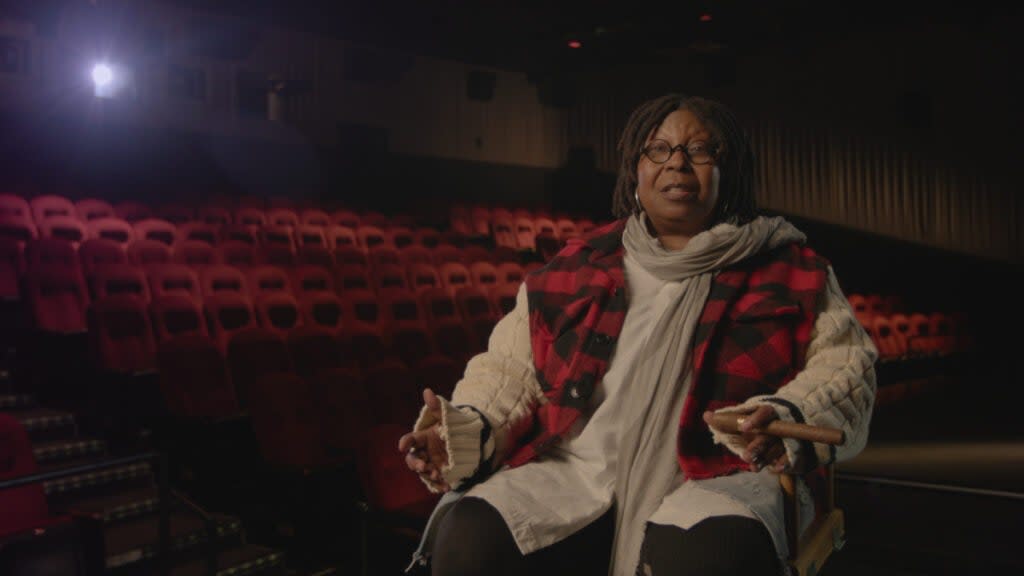‘Is That Black Enough for You?!?’ Review: Deeply Felt Documentary Celebrates ’70s Black Cinema

- Oops!Something went wrong.Please try again later.
The title of Elvis Mitchell’s documentary “Is That Black Enough for You?!?” is a rallying cry heard in Ossie Davis’ “Cotton Comes to Harlem,” and it reflects the exuberant tone of this very wide-ranging, essayistic tribute to the Black-centered movies of the 1970s.
Mitchell describes his intentions on the soundtrack and says that this film is an examination of how “one decade forever changed the movies and me.” Though we never see him on screen, it is Mitchell’s voice guiding us throughout, and that voice is never less than lively, witty and provocative.
Premiering at the New York Film Festival on its way to Netflix, “Is That Black Enough for You?!?” runs 135 minutes and takes in an enormous amount of material; Mitchell’s insights into any particular film or subject have to be both brief and acute, and this suits Mitchell perfectly, because he has always been a writer who can say more with one sentence than many writers can with a page of text.
Also Read:
‘She Said,’ ‘Till’ and Martin Scorsese Documentary to World Premiere at New York Film Festival
Mitchell has gathered together a very distinguished group of interview subjects for “Is That Black Enough for You?!?” and he showcases them like the host of a party who is eager to let his guests shine. At the top of this list is 95-year-old legend Harry Belafonte, who describes his own troubles getting worthy work as an actor in the 1950s and ‘60s with above-it-all authority.
Mitchell’s documentary goes year by year from about 1968 to 1977 and takes in as many Black-led movies as possible, but he keeps his structure open so that a trip back to the past is never out of the question if it will help raise a larger point or provide context. Threaded throughout is Mitchell’s central theme, that the “procession of assured Black talent” on screen in the early 1970s was a counterpoint to the general national mood of that time, which was reflected in the anti-heroes being played on screen by Al Pacino and Jack Nicholson.
Also Read:
Academy Museum’s ‘Regeneration’ Exhibit to Cover 73 Years of Black Cinema
Several of the interview subjects here — including Samuel L. Jackson, Laurence Fishburne and director Charles Burnett — say that their first experience of the movies came from watching Westerns, and Mitchell carefully traces this influence in some of the initial films made in what would come to be known as the “Blaxploitation” genre. Mitchell also credits George Romero with giving the lead in his now-classic zombie movie “Night of the Living Dead” to Duane Jones, whose race is never mentioned on screen.
Mitchell does sometimes slow down a bit to pay special tribute to actors like Jones, Rupert Crosse (who was nominated for an Oscar for his role in “The Reivers”) and the gifted Diana Sands, who gave her finest performance in “The Landlord” in the early 1970s but missed out on the star-making lead role in “Claudine” when she died at age 39.
Also Read:
Tanya Kersey, Founder of Hollywood Black Film Festival, Dies at 61
It was 1972 when new ground was broken by two very different movies: “Lady Sings the Blues,” a fictionalized biopic of the life of Billie Holiday that emphasized the glamour and chemistry of Diana Ross and Billy Dee Williams; and “Sounder,” where Cicely Tyson played the matriarch of a rural Black family. When Williams is interviewed here, even he admits to falling a little in love with himself in “Lady Sings the Blues” in the scene where he walks down some stairs and into the sort of flattering lighting that had been reserved for white stars of the past.
Mitchell gives some loving attention to famous movies like these and to the queen of the Blaxploitation genre, Pam Grier, but it is clear that his keenest interest lies more in the deeper cuts he selects for us of Black independent movies and the soundtracks that helped to make them hits. He takes the audience on a tour of pictures like “Cool Breeze,” “Willie Dynamite,” “Cooley High” and “Honeybaby, Honeybaby,” providing a sharp and valuably critical perspective that is too often missing from survey documentaries like this.
When Mitchell reaches “Saturday Night Fever” and shows us how the strut of John Travolta’s Tony Manero is so close to the physical presentation of Blaxploitation heroes, he has primed us to see how tropes from the Black community have been absorbed by a white show-business culture concerned above all with making money. The sense of loss post-1978 is pronounced, but there is also a sense of celebration and discovery in “Is That Black Enough for You?!?” that lets us see a whole world of lesser-known films just waiting to be viewed, re-viewed and appreciated in new ways.
“Is That Black Enough for You?!?” premieres on Netflix November 11.

